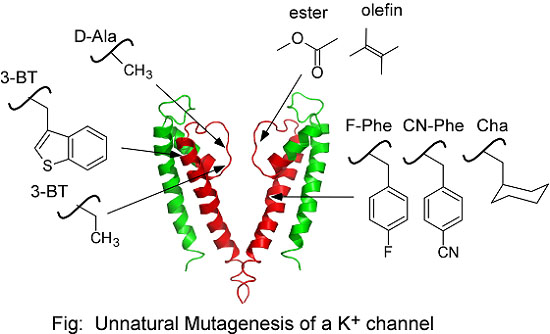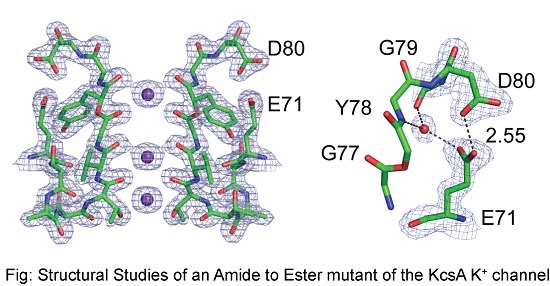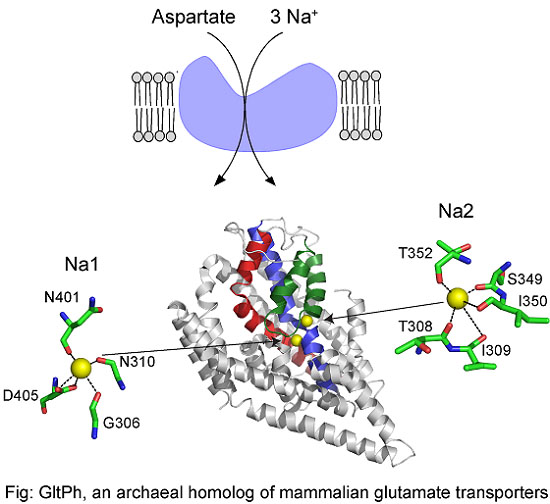Valiyaveetil Lab
Presently, we are investigating:
1) Slow Inactivation in K+ channels
K+ channels discriminate K+ from Na+ in a specialized region referred to as the selectivity filter. In addition to selective conduction of K+, the selectivity filter also participates in a gating process referred to as slow or C-type inactivation, during which conformational changes at the selectivity filter convert it from a conductive to a non-conductive state. Slow inactivation is a physiologically important process as it plays a direct role in regulating neuronal firing and in pacing cardiac action potentials. We are investigating the conformational changes that take place at the K+ selectivity filter during slow inactivation and the molecular forces that drive this process.


2) Transport Mechanisms in Amino Acid Transporters
Glutamate transporters catalyze the concentrative uptake of glutamate from synapses by harnessing the energy stored in the ionic gradients present across the membrane. Glutamate transporters are essential for efficient synaptic transmission and for preventing glutamate induced neurotoxicity. We are investigating the molecular mechanisms underlying substrate recognition, ion selectivity, and the coupling of substrate and ion transport. Understanding these functional mechanisms is important because dysfunction of glutamate transporters has been implicated in neurological diseases such as Alzheimers and amyotrophic lateral sclerosis (ALS, Lou Gehrig's disease).
